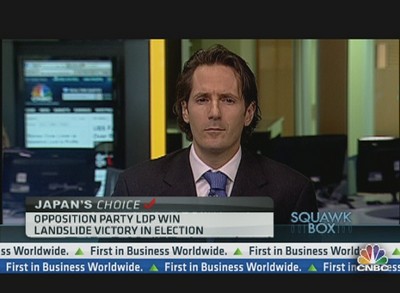A Low Yen Is Dependent On Fed & ECB: Pro
Frederic Neumann, MD & co-head of Asian Economics Research at HSBC, speaks to CNBC about the aftermath of Japan¿s election and whether the Yen will be pushed lower.
The BOJ is meeting next on Thursday and may expand its asset-purchase program by another 5 to 10 trillion yen, Reuters reported. The last time they eased was in October, and then too they had expanded their bond buying by about 10 trillion yen.
Whatever the outcome of Thursday's meeting, the long-term trend is clear. The BOJ will not be as cautious as it has been, said Ray Attrill, co-head of forex strategy at National Australia Bank in Sydney.
"I think the days of the BOJ being able to maintain its current cautious stance towards monetary easing is certainly numbered," Attrill said. "The new government has the right to appoint the new governor and the two new deputy governors whose terms expire next March and April, respectively. And we have two BOJ board members who have been appointed because of their explicit support for much more aggressive policy earlier this year."
Jesper Koll, managing director and head of Japanese equities at JPMorgan Securities Japan, agreed that Abe will have a lot to prove this time around as prime minister. He is expected to be voted in by parliament on December 26.



No comments:
Post a Comment